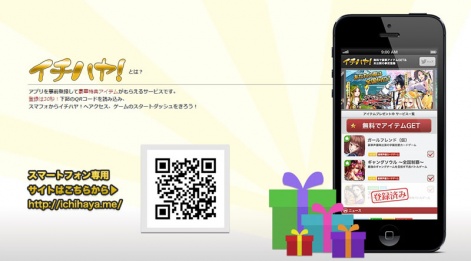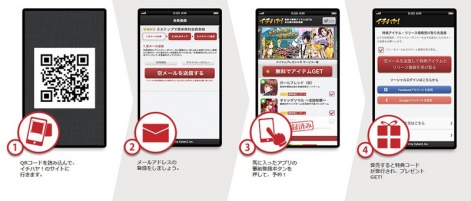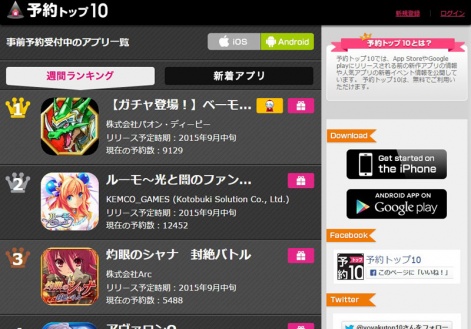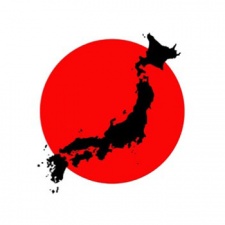David McCarthy has been employed by Metaps, GREE, Rockstar Games and Edge magazine.
He currently works for Japanese developer Cybird Inc.
Something that we are working on right now here at Cybird is the pre-registration campaign for a forthcoming app.
In Japan, this is pretty straightforward. In Europe, it seems, it is next to impossible.
In Japan, pre-registration campaigns - where users sign up to play in advance of a game's launch, usually in return for some sort of in-game reward - are an almost indispensible part of the promotional campaign for any mobile game.
But they don't appear to have taken off in the west yet.
So why are they such a big deal in Japan (and other parts of Asia)?
Supply demand
The obvious reason is that there is an appetite for them.
There exists, in Japan, a significant number of hardcore mobile gamers who are actively interested in finding out about new releases; who are familiar with and fans of the free-to-play model; who are keen to check out the latest games and keen to get hold of any in-game freebies or advantages that they can get their hands on.
By signing up for games before they are launched, these gamers benefit from regular news updates and in-game items that heighten their enjoyment from day one.

The upside for developers is that these players tend to be the most loyal of all the types of player who sign up for any given app. They sign up early because they are interested in the game, and they stay playing for longer than their peers - perhaps because they reap the benefits of having a head start on them.
The upside is that these players tend to be the most loyal players.
Crucially, they are also around when the app launches.
Games with a heavy multiplayer/social component benefit from having a lot of players, preferably as soon as possible, and almost all successful games in Japan have a heavy multiplayer/social component.
With developers rarely opting to soft launch domestic titles, pre-registration circumvents the alternative of a long, slow build up of players.
Open doors
Another reason pre-registration campaigns are ubiquitous in Japan is simply that it's possible to do them.
Partly that is because of the consumer demand mentioned above; but it is also a consequence of the strength of the gaming media over here, and the existence of third-party websites dedicated solely to pre-registrations.
The demand for news about the latest apps is met by sites like Famitsu App, or Social Game Info; while sites and services such as Yoyaku Top 10, run by Adways, or Ichihaya, managed by Cyber Z, make it easy for developers to set up campaigns.

And what, exactly do those campaigns involve?
Devs are always experimenting with new ways of implementing them.
Duh, that's obvious: users register for the game, they get an email when it launches, and when they start playing it they get something free. Simple!
Actually it's not always that simple.
Depending on what channels you use - a thirdparty pre-registration site? Facebook? Twitter? Your own landing page? - you might also need to conduct paid and viral marketing.
And now that pre-registration campaigns are so ubiquitous, developers are always experimenting with new and interesting ways of implementing them.
Here are some of the more popular ones, recently:
- The standard pre-registration: As above, players sign up in advance and after the game is launched they receive a special in-game item, perhaps one that is limited to pre-registered users only, or perhaps one from a choice of several. As used by Square Enix to promote Million Arthur Extasis.
- Cross-promotion type: This is where players who pre-register receive an in-game item or character for a game that they are already playing - usually to try to encourage them to move across from a title that is closing down to a sequel, for example (though there is obviously a risk that they will sign up just to get the item for the existing game). As used by Asobism to promote Castle & Dragon.
- Gacha type: Which allows players to open a gacha on a landing page to win a random item that they can use in-game. The so-called Flying Get Gacha system pioneered by Drecom allows users to tweet and share on social media to increase the number of times they can open a gacha. Sometimes it is even possible to level up characters offline in advance of launch. As used by Gloops to promote Gururin Quest.
- Unlock type: Like a kKckstarter's stretch goals, this sees a hierarchy of rewards that are unlocked the more people sign - thereby incenvitizing users to share and encourage their friends to sign up. The risk, of course, is that if nobody signs up, everybody will know. As used by Akatsuki to promote Mezamashi Festival.
- Friend invite type: Where players receive rewards proportional to the number of their friends who sign up. As used by BlazeGames to promote Little Noah.
Finally, a caveat. As with every aspect of app marketing, the rules and regulations surrounding pre-registration campaigns are a little grey and always changing.
Apple specifically disallows the unlocking of in-game functions outside of the app store, so any rewards need to be carefully implemented. (Google currently seems to have no problem with pre-registration campaigns).

In any case, anyone launching a smartphone game in Japan should definitely consider trying out one or more of the above techniques.
It might even be worth trying in the west - if anyone knows how, please let me know!



















